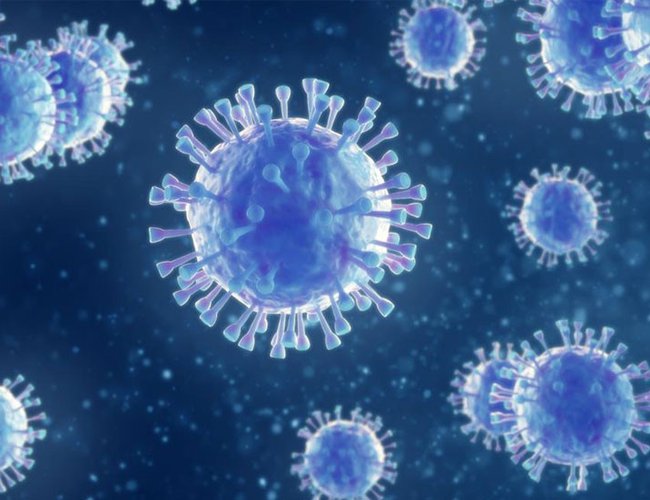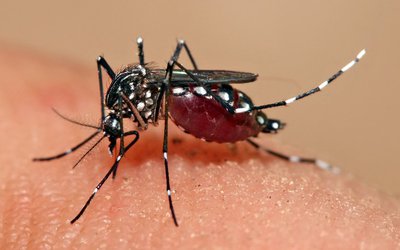
As infection rates climb around the world, the fear of second wave and secondary infections are a growing concern. And despite the best efforts of epidemiologists, the behavior of the COVID-19 virus is still relatively unknown, and that’s causing problems for patients and medical staff in Latin America, the world's most infected region.
There are over 25.6 million confirmed COVID-19 cases globally, with over 853,000 fatalities and more than 16.9 million recoveries, according to the latest tally from Johns Hopkins University.
As of Tuesday, the Chinese mainland had recorded 85,066 cases, with 353 asymptomatic patients under medical observation. The death toll in China stands at 4,731, including 90 fatalities from the Hong Kong Special Administrative Region and seven from the Taiwan region.
The Chinese mainland recorded eight new cases on Tuesday, all from overseas. It is the 17th consecutive day the Chinese mainland has reported no new domestically transmitted cases.
The U.S. has registered more than six million infections and more than 184,000 deaths so far – both the highest in the world.
And the total number of coronavirus cases in Russia passed the one million mark on Tuesday.
India reported 78,357 new COVID-19 cases and 1,045 new deaths, bringing total number of confirmed cases to 3,769,523 with 66,333 deaths. As of September 1, more than 44.33 million virus samples had been tested across the country.
Mexico confirmed 6,476 new cases and 827 more deaths, raising total number of confirmed cases to 606,036 and death toll to 65,241.
Chile recorded 1,415 new cases and 32 new deaths, bringing the total to 413,145 with 11,321 deaths. Defense ministry has announced that 22 soldiers were recently infected with COVID-19 on a Chilean navy frigate.
Argentina's total number of confirmed cases rose to 428,239, with the death toll hitting 8,919. In the past week, there were more than 9,500 new cases per day, and the occupancy rate of hospital beds increased in many places. The occupancy rate of intensive care beds nationwide is 60.6 percent.
Israel recorded 1,297 new cases and 11 more deaths in the past 24 hours, bringing
Antibody levels against the novel coronavirus rose and then held steady for up to four months in more than 90 percent of recovered COVID-19 patients in Iceland, according to a study published on Tuesday.
In previous studies, antibody levels dropped sharply within a few months after COVID-19, raising questions about the duration of immunity that infection may provide.
The new finding may have implications for reinfection risks and vaccine durability, said Kari Stefansson, chief executive of deCode Genetics, which conducted the study.
To get a sense of how many people in Iceland had been infected with the new coronavirus and learn more about immune status after recovery, researchers measured antibody levels in more than 30,000 Icelanders.
Based on the results, they estimate that about one percent of the population had been infected. Of that group, 56 percent had received a confirmed diagnosis after a gold-standard PCR laboratory test. Another 14 percent had not been formally diagnosed but had quarantined after exposure to the virus. In the remaining 30 percent, the antibody tests led to discovery of prior infection.
Among the 1,215 people with an infection confirmed by PCR, 91 percent had antibody levels that rose during the first two months after diagnosis and then plateaued, researchers reported.
The results, published in The New England Journal of Medicine, focused on a homogeneous population from a single country, so the findings may not be the same in other parts of the world with diverse populations.
Still, the study shows how careful antibody tests can determine the true prevalence of infection, Stefansson said.
An editorial that accompanied the study cautioned that it is unclear if recovered patients' antibodies will protect them from reinfection.
However, it suggested that antibody tests may be a cost-effective alternative to infection testing alone, and may work better in surveying populations as countries look to safely reopen their economies and schools.
- PM Oli Returns Home Attending UN FFD4 Summit
- Jul 05, 2025
- Trump signs into law domestic policy bill
- Jul 05, 2025
- Putin-Trump call after US halts some arms shipments to Ukraine
- Jul 04, 2025
- USAID programs officially suspended
- Jul 03, 2025
- Thailand’s Constitutional Court suspended PM Paetongtarn Shinawatra
- Jul 02, 2025














